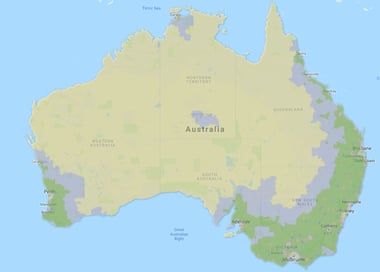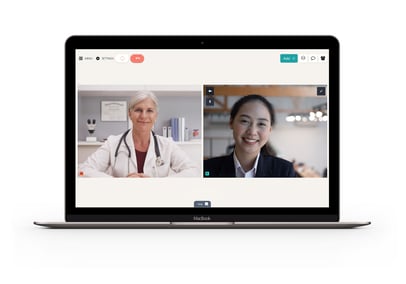10/10 rebates for Better Access Mental Health Services
Did you know that people living in rural and remote areas of Australia face more daily challenges and stressors than living in the main cities? These include a greater prevalence of chronic conditions, disability, and generally poorer health. In some areas reporting 8 times the hospitalisation rate for mental health-related issues.
There are fewer employment opportunities leading to lower incomes, less financial security and increased financial stress. Along with greater exposure to natural disasters, including the current and escalating drought crisis affecting thousands of Australian farmers.
Rates of self-harm and suicide have been shown to increase with remoteness, suggesting that there are very significant mental health issues to be addressed in rural and remote areas.
The challenge is that rural Australia only has about one-third of psychologists per 100,000 inhabitants compared to major cities. So there is a huge demand for mental health support required in rural areas but not enough clinicians available locally.
However, with advances in technology and government policy, there is an opportunity for Psychologists and Allied Health Professionals to make an enormous difference to patients in rural Australia right now with Telehealth.
For rural patients to be able to access mental health services from their laptop or mobile and choose from service providers throughout Australia regardless of their location, means that wait times can be reduced and resources can be more evenly distributed.
Medicare has also made the right move to support you as you can now rebate 10 out of 10 video consultations under the "Better Access Telehealth" Initiative.
 Offering Telehealth services, in the way of video consultations, to treat rural folks can the solution, especially with the roll-out of the National Broadband Network (NBN) making broadband connectivity stronger, faster and more reliable than ever before.
Offering Telehealth services, in the way of video consultations, to treat rural folks can the solution, especially with the roll-out of the National Broadband Network (NBN) making broadband connectivity stronger, faster and more reliable than ever before.
What is the Better Access initiative?
The Better Access Initiative was introduced in 2006 as a way to improve the assessment, treatment and management of mental illness in the community.
It has since been expanded to include new Medicare items to allow patients in rural and remote areas (MMM areas 4-7) to access mental health services through video conferencing, also referred to as “Telehealth”.
The scheme provides assistance and Medicare rebates for psychological treatment via video consultations, which enables people to access mental health care services in a more convenient and affordable way.
Without it, they would endure painfully long wait times, spend hours driving cross-country to the nearest specialist or worse, suffering in silence and not seeking help at all.
What services are available under Better Access?
Medicare rebates are available for up to ten individual and ten group allied mental health services per calendar year to patients with an assessed mental disorder who are referred by;
- a GP managing the patient under a GP Mental Health Treatment Plan
- under a referred psychiatrist assessment and management plan
- under a psychiatrist or paediatrician assessment
Psychiatrists and paediatricians are able to directly refer and treat patients via video consultations meaning they can offer a bulk billing service whereby patients get instantly rebated.
What are the Better Access Guidelines?
As of 1st November 2017, patients in rural and remote locations have been able to claim rebates for video consultations and allowed up to seven of ten mental health consultations to be provided via video online. However, one of the first four sessions was required to be delivered through a face-to-face consultation to provide a more personal connection with the mental health professional.
This was still causing barriers for rural patients with the fundamental issue being that they can not get to a face-to-face appointment due to the remoteness of their location or pressures of work etc. So in August 2018, the Australian Government has announced further changes to the measure so that people can now access all ten consultations under the Medicare Better Access services via video calls without having to leave home.

Who is eligible and where must they be?
The person receiving care must be located in Monash Modified Model areas 4 - 7 and must, of course, be eligible for Medicare rebates.
The person receiving care must:
- NOT be admitted to hospital at the time,
- NOT be a patient of an emergency department at the time, and
- be located at least 15 kilometres by road from the eligible allied health provider.
The treating psychologist or allied health professional can be located anywhere in Australia, subject to the 15-kilometre minimum distance requirement.
Who is eligible to bill video consultations?
Telehealth services can be delivered by Psychologists and other eligible allied health professionals, including occupational therapists and social workers.
All allied mental health professionals wishing to deliver Psychology Therapy Services and Focussed Psychological Strategies (FPS) using Medicare items must be registered with Medicare Australia as meeting the eligibility requirements of the items.
What services can be provided?
Better Access services can be provided to offer a full intervention package for the patient’s condition. In addition to psycho-education, it is recommended that cognitive behaviour therapy (CBT) be provided. However, other evidence-based therapies, such as interpersonal therapy, may be used if considered clinically relevant.
A range of evidence-based strategies has been approved for use and there is also flexibility to include narrative therapy for patients of Aboriginal and Torres Strait Islander descent.

What is the Medicare schedule fee for a video consultation?
Under the Better Access initiative, new items for Telehealth services will be available at the same rebate as the existing ten face-to-face eligible services for allied health providers.
The ten individual services may consist of:
- GP Focussed Psychological Strategies services (items 2721 to 2727)
- Medical Practitioner Focussed Psychological Strategies services (items 283 287)
- Psychological Therapy Services (items 80000 to 80015)
- Focussed Psychological Strategies – allied mental health services (items 80100 to 80115; 80125 to 80140; 80150 to 80165)
The ten group services may consist of:
- Psychological Therapy Services (items 80020 and 80021)
- Focussed Psychological Strategies – allied mental health services (items 80120, 80121, 80145, 80146, 80170 and 80171)
- Referring practitioners may refer patients for a maximum of six Better Access consultations on any one referral
- A further referral from a GP or psychiatrist/paediatrician is required for up to four additional sessions to a maximum of ten individual and ten group services per calendar year.
 What is a video consultation?
What is a video consultation?
For the purposes of this initiative, a video consultation is where a patient and an eligible psychologist or allied health professional undertakes a referred consultation via video call i.e. visual and audio link, and on any PC or mobile device.
What is the best software for video consultations?
Coviu is a secure video conferencing platform spun-out of the CSIRO and proud to be built in Australia.
It has been designed specifically for Healthcare professionals and has been specially adapted to support low bandwidth areas and rural locations in Australia.
Video consultations with Coviu are secure, easily-accessible on all devices, high-quality and reliable and our software is pro-integration - meaning it will simply slot inside your current practice workflow and systems to eliminate any unnecessary friction.
Our mission is to make telehealth “business as usual” for patients and providers through an effortless software experience, through best-in-class support, and through validated clinical tools.
Source: Department of Health on Better Access Telehealth initiative for rural and remote patients guidelines.




.jpeg)